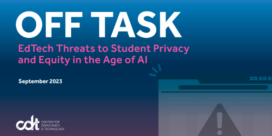Crunch the Numbers: A Question of Leadership; First-gen Students Get Online; AI Worries on Student Privacy
Americans are experiencing a crisis of faith toward higher education leaders and do not fully trust them to prioritize their ... Read more







